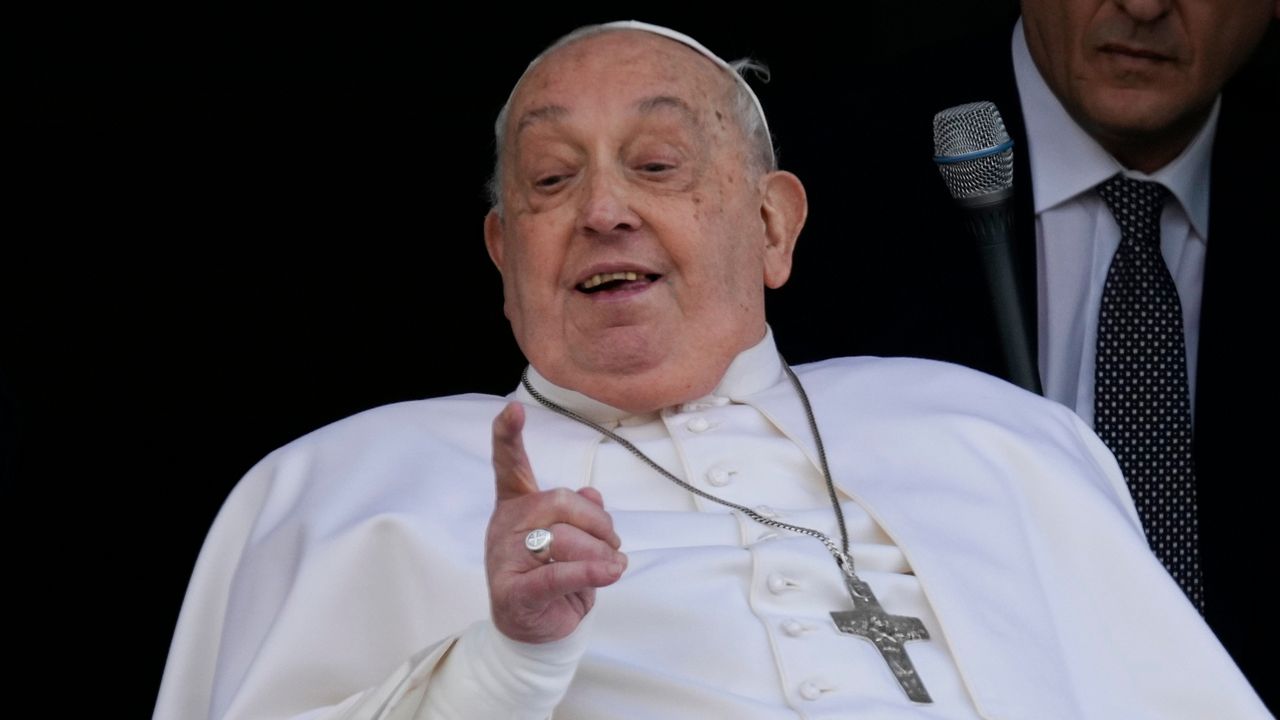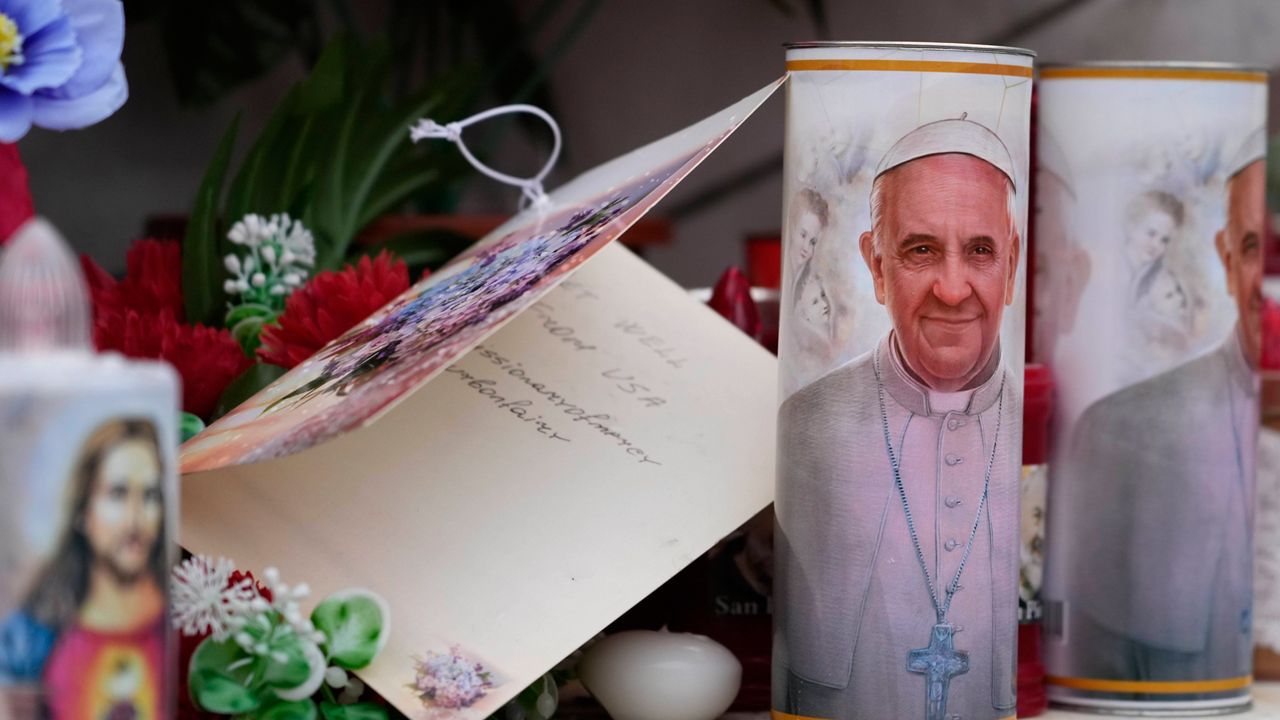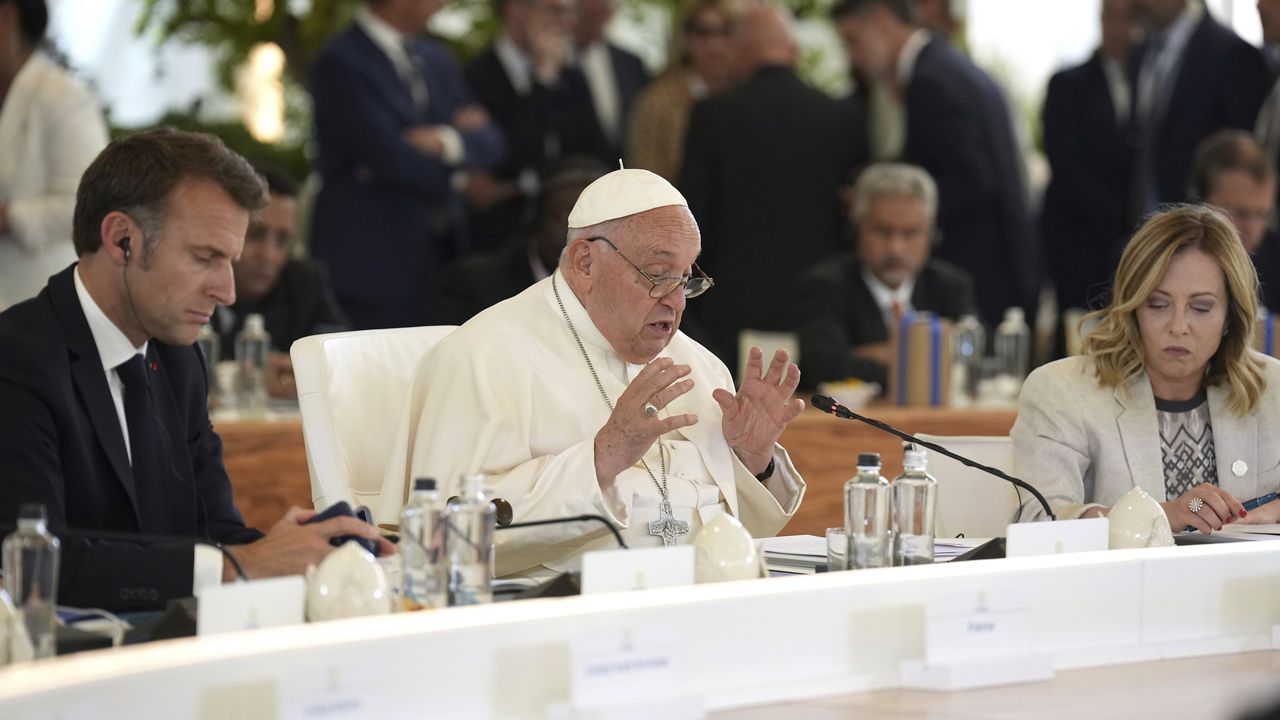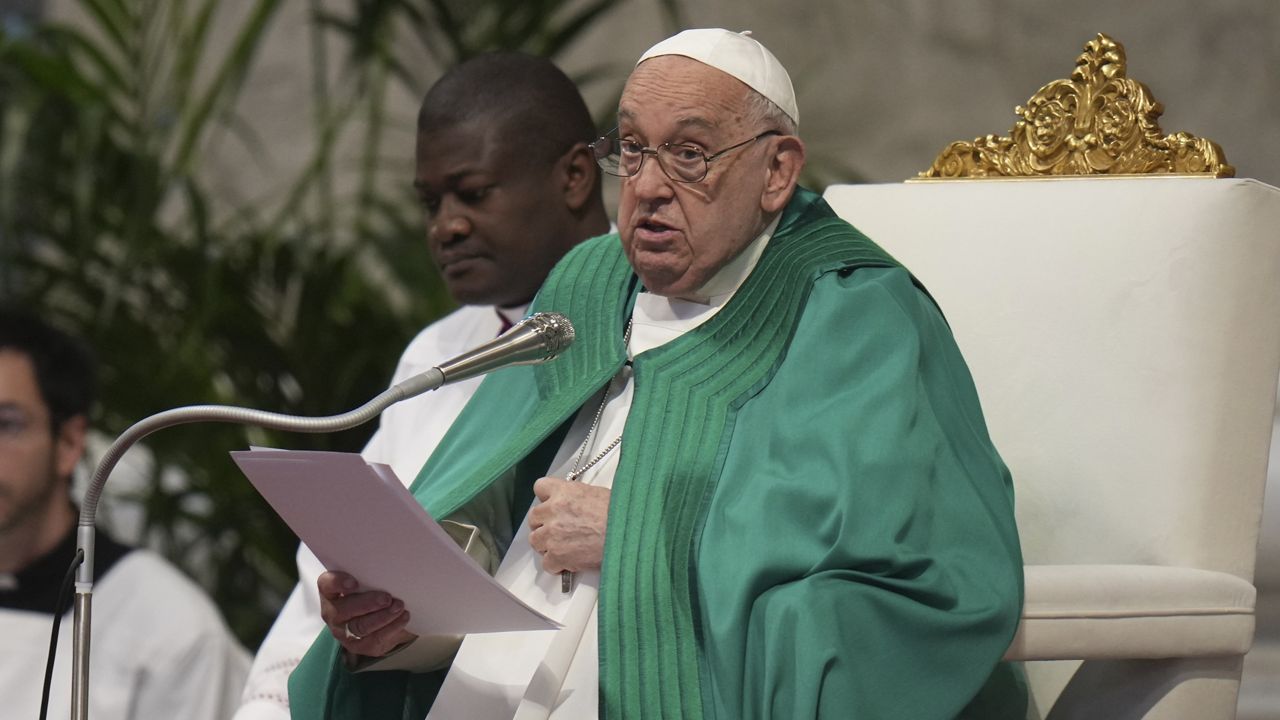ROME — Pope Francis woke up and was continuing his therapies Monday after a quiet night, on the 10th day of his hospitalization for a complex lung infection that has provoked the early stages of kidney insufficiency, the Vatican said.
“The night passed well, the pope slept and is resting,” it said. The 88-year-old pope is continuing to feed himself and is not receiving artificial or liquid nutrition, the Vatican said, adding that he was in good spirits.
A medical bulletin was expected later in the day. Also later Monday, the Vatican No. 2, Cardinal Pietro Parolin, was to lead a nighttime prayer of the Rosary in St. Peter's Square.
Late Sunday, doctors reported that blood tests showed “early, slight kidney insufficiency” that was nevertheless under control. They said Francis remained in critical condition but that he hadn't experienced any further respiratory crises since Saturday.
Francis, who has pneumonia in both lungs, was receiving high flows of supplemental oxygen and, on Sunday, was alert, responsive and attended Mass. They said his prognosis was guarded.
Doctors have said Francis’ condition is touch-and-go, given his age, fragility and pre-existing lung disease. They have warned that the main threat facing Francis is sepsis, a serious infection of the blood that can occur as a complication of pneumonia.
To date there has been no reference to any onset of sepsis in the medical updates provided by the Vatican.
This hospitalization now stands as Francis' longest as pope. He spent 10 days at Rome’s Gemelli hospital in 2021 after he had 13 inches of his colon removed.
In New York on Sunday, Cardinal Timothy Dolan acknowledged what church leaders in Rome weren’t saying publicly: that the Catholic faithful were united “at the bedside of a dying father.”
“As our Holy Father Pope Francis is in very, very fragile health, and probably close to death,” Dolan said in his homily from the pulpit of St. Patrick’s Cathedral, though he later told reporters he hoped and prayed that Francis would “bounce back.”
Francis' condition has revived speculation about what might happen if he becomes unconscious or otherwise incapacitated, and whether he might resign.
Francis’ recent reforms suggest he knew he was getting older and more fragile
Francis has taken several recent decisions that suggest he was well aware that he was getting old and frail.
Last year, he revised the funeral rites that will be used after he dies, simplifying the rituals to emphasize his role as a mere bishop and allowing for burial outside the Vatican in keeping with his wishes. But the core elements of the rites remain, including the three key moments that must be observed between the death of a pope and his funeral: In his home, in St. Peter’s Basilica and in the place of burial.
In December, Francis created 21 new cardinals. All but one were under age 80 and thus eligible to vote in a conclave to elect his successor. Their additions brought the overall number of voting-age cardinals to 140, well over the 120 limit set by St. John Paul II. But several of the current electors are turning 80 this year, bringing the number down.
Earlier this month, once he was already sick, Francis decided to extend the five-year term of the current dean of the College of Cardinals, Cardinal Giovanni Battista Re, 91, rather than make way for someone new. As depicted in the film “Conclave,” the dean of the College of Cardinals plays an important role in the life of the Catholic hierarchy, and is a crucial figure during the transition between one papacy and the next.
Francis also decided to extend the term of the vice-dean, Argentine Cardinal Leonardo Sandri, 81.
—
This story has been corrected to say that doctors detected early stages of kidney insufficiency, not failure.









